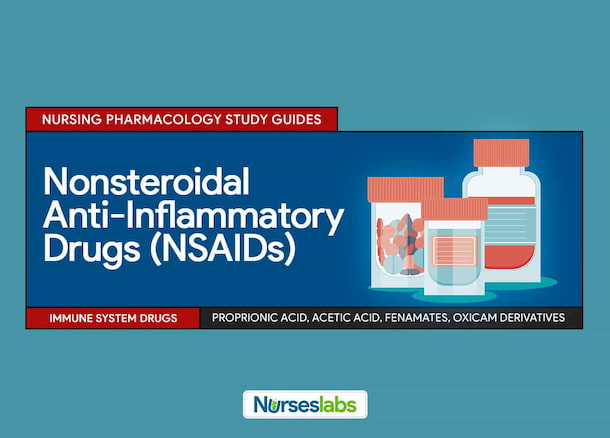The Most Commonly Used Veterinary Medications for Dogs – FAQ
While dogs are happy and easy to take care of most of the time, they too can face certain health issues during the course of their lives. So, if you’re a dog owner, there will probably come a time when it’s necessary to give your dog some meds. And when that happens, it can be helpful to have some knowledge. Here are some frequently asked questions about the most commonly used veterinary medications for dogs.
What Pain Medication Is Safe for Dogs?
While Epsom salt has proven as great in relieving itchy skin, aiding wounds and problems with paws, it won’t be of any help if used as a pain reliever. You can tell when your dog is in pain, and in those situations using veterinary medications for dogs that can relieve pain is the only solution you have. Here are the safest pain medications you can use.

source: unsplash.com
NSAIDs (Nonsteroidal Anti-Inflammatory Drugs)
When it comes to swelling, stiffness and joint pain, we, humans mainly lean on the help of NSAID drugs. Fortunately, these drugs can also be used for dogs, especially when related to arthritis pain or for the pain after surgery. These veterinary medications for dogs work by reducing the pain by inhibiting the cyclooxygenase enzyme.
This enzyme, on the other hand, is responsible for the production of prostaglandins which cause inflammation. However, prostaglandins are essential for proper blood flow to kidneys and normal blood clotting. So, if their production is inhibited, there will be serious consequences on your dog’s health. That is why ibuprofen and acetaminophen are not the most suitable option for dogs.
Instead, there are some other NSAIDs which are appropriate for dogs like carprofen, deracoxib, firocoxib and meloxicam. All of these medications need to be taken under the supervision of your dog’s vet, as your dog can still develop bad reactions to them. Such reactions could be changes in behaviour, skin redness and scabs, diarrhoea, vomiting, tarry stool and loss of appetite.

source: nurseslabs.com
Except for these medications, your vet might give you a green light for giving your dog a limited amount of aspirin but only for short-term use. Otherwise, this may lead to gastrointestinal bleeding.
Gabapentin and tramadol are other types of medications that sometimes your dog’s veterinarian can prescribe to it. The first type is used for reducing pain from damaged nerves in both humans and dogs, and tramadol is a pain killer used for treating some kind of discomfort and stomach pain. However, there can be some side effects of using it like dizziness and vomiting.
Is There Medication for Aggressive Dogs?
Unfortunately, aggression in dogs is common and can be caused by different factors. Regardless of what’s causing it, it is best if you start treating it first with some behavioural techniques like for instance rewarding good behaviour.
However, sometimes behavioural tactics won’t work in calming aggressive dog, and this is when certain types of calming medications can help. You shouldn’t neglect the need for using dog medication, because if left untreated, there can be serious consequences to aggression.

source: petmd.com
In order to determine what type of dog medicines may work the best, the vet should consider some of the following factors:
-The dog’s genetic predispositions;
-The presented problems and symptoms;
-Its health issues;
-If there are any specific behaviour indications;
-If there are some factors/triggers in its environment.
-According to veterinarians, there are some prescribed drugs that may aid in preventing aggressiveness and other unwanted behaviours:
Fluoxetine
This medication is mainly effective in situations of owner-directed aggression, inter-dog aggression, separation anxiety, fear aggression and obsessive-compulsive behaviours.
Sertraline
Prescribed for dogs that have an owner directed aggression and for separation anxiety.
Amitriptyline
Another medication prescribed for dogs that have an owner directed aggression, fear aggression and separation anxiety.
Clomipramine
This medication is used mainly for anxiety and compulsive disorders, noise phobias and fear aggression.
Buspirone
A medication used for treating noise phobias, separation anxiety, fear aggression and obsessive-compulsive behaviours.
Propranolol
Except for aggression caused by fear, this medication is also used for treating generalized anxiety.
Risperidone
This medication still undergoes lots of examination, but it is believed that may help in sociopathy, social directed regression, hallucination and impulsive aggression.
All of these medications can help if your dog shows signs of unusual levels of neurotransmitters in its brain. It usually takes up to 4 weeks before you see an effect in your dog’s behaviour, however, it may take up to 2 months to see a full recovery.
Is Heartworm Medication Safe for Dogs?
In the past, heartworms in dogs were treated with arsenic which unfortunately had a lot of side effects. Luckily, nowadays, there are safer products with fewer side effects. Since these medications are pricey, veterinarians recommend using preventative therapy. That being said, a year’s supply of heartworm preventive medication may cost somewhere between $30-$80 depending on the weight of your dog. Plus, unlike the therapy given to treat heartworm, preventative drugs have no side effects.

source: celadonbooks.com
Another reason why you should think about taking preventive precautions is because heartworm is a disease that can be passed by the bite of an infected mosquito. It’ll take about seven months after the mosquito bite for the larvae to mature into adult heartworms. Once developed, they lodge in the lungs, the heart and around the blood vessels so they could reproduce even more. The most important thing to know is that even if you treat it, your dog still experiences serious health problems and great discomfort.